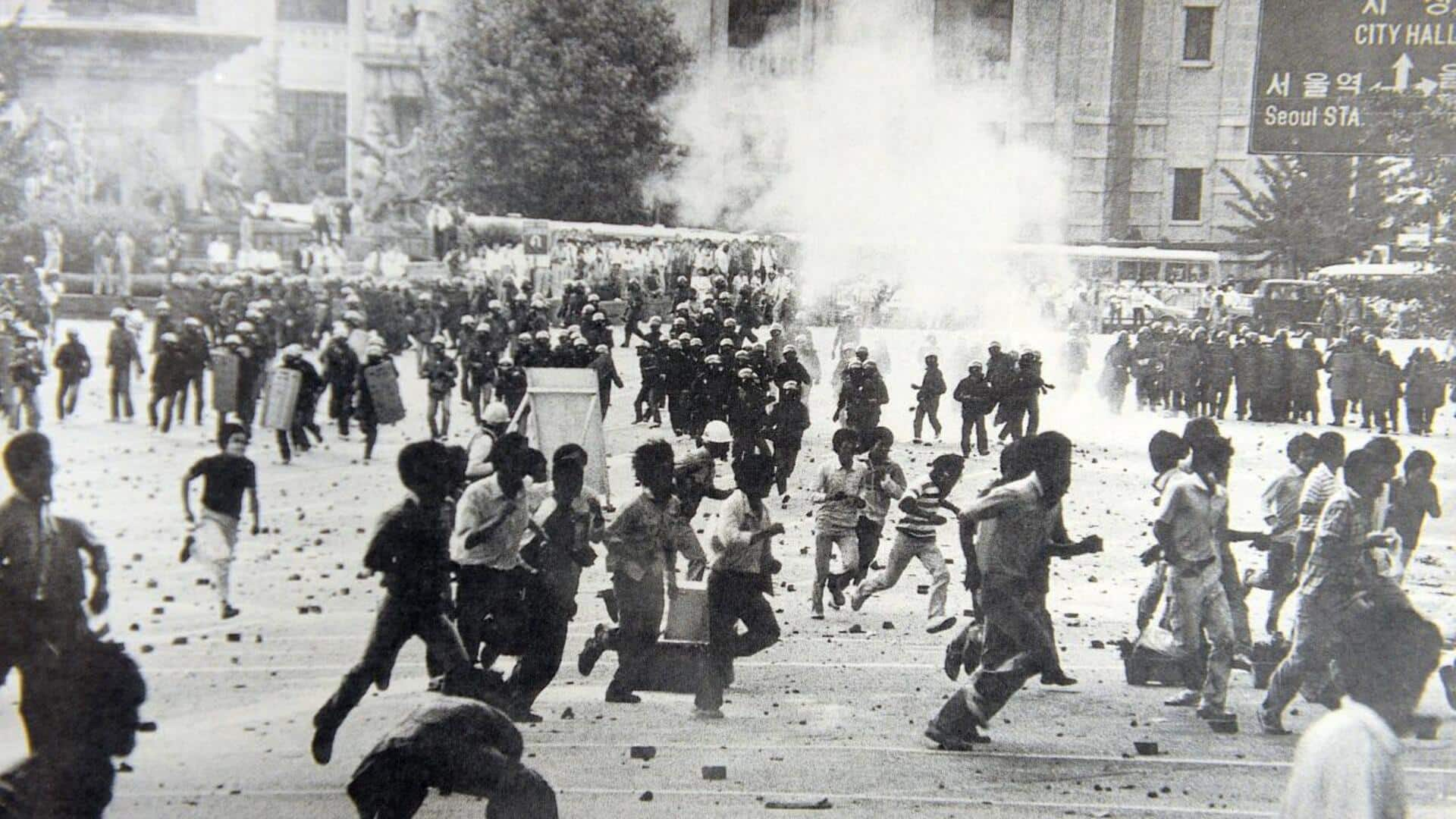
Explained: How South Korea's impeachment process works
What's the story
South Korean opposition parties have moved to impeach President Yoon Suk Yeol after his surprise declaration of martial law on Tuesday night.
The martial law was revoked within six hours amid fierce opposition from the parliament.
The incident, which saw military troops storming the National Assembly, has been termed as the biggest blow to South Korean democracy since the 1980s.
Public sentiment
Public opinion supports impeachment of President Yoon
A recent poll shows 73.6% South Koreans support impeaching Yoon, while 69.5% think his actions constituted insurrection.
The impeachment process was set in motion when opposition parties filed a motion on December 4, citing constitutional violations.
It was reported to the National Assembly early Thursday, and a vote is expected on Saturday.
To pass, the motion needs a two-thirds majority or at least 200 votes in the 300-seat parliament.
Parliamentary dynamics
Opposition needs ruling party support for impeachment
The opposition coalition, which has 192 seats, requires at least eight members of the ruling People Power party to back them.
People Power party leader Han Dong-hoon is against impeachment. However, some party members have previously broken ranks on other issues.
If the National Assembly passes the motion, Yoon would be suspended from duties immediately, and Prime Minister Han Duck-soo would be acting president while the constitutional court deliberates.
Court proceedings
Constitutional court's role and challenges in impeachment
However, procedural challenges remain as the court only has six of the nine justices' positions filled.
Seven justices are required to review a case.
At least six justices will have to vote in favor of impeachment for it to proceed, but the court may be hesitant to initiate such a politically sensitive case without a full bench, given its gravity.
If the court takes the case, it has up to six months to rule.
Historical context
South Korea's history and future of presidential impeachment
South Korea has seen two presidential impeachments since democratization: Park Geun-hye was ousted in 2017 over corruption charges; Roh Moo-hyun was reinstated in 2004 after his impeachment was overturned by the court.
If this first impeachment attempt fails, opposition parties may repeat the process as Yoon's ouster has been their goal even before the martial law incident.
If Yoon is ousted or resigns, South Korea must hold a presidential election within 60 days.